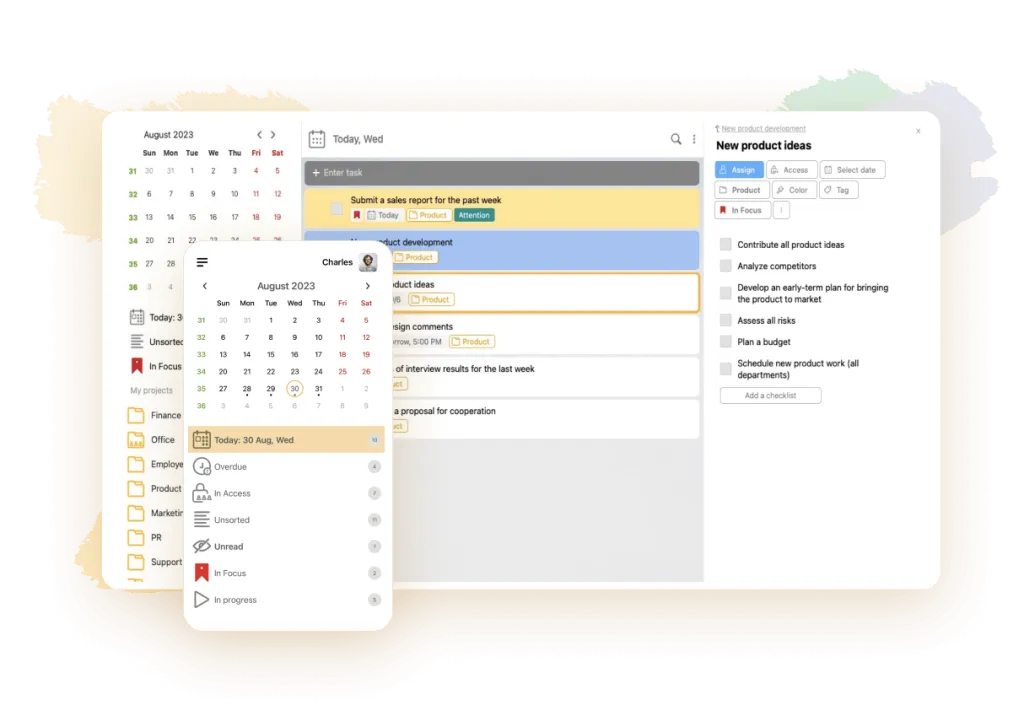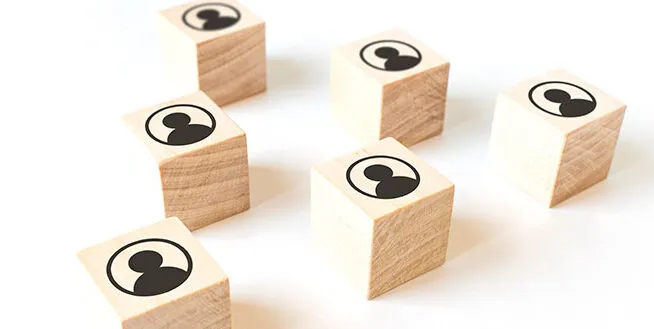
Ted Scott
March 5, 2024
Thanks to habits, we can easily perform an action without much effort. Daily brushing of teeth is automatic, people make their bed in the morning without thinking. According to different sources, it takes a person from one to three months to adopt a new habit. In this case, a person can instill both good and bad habits. And most often it happens that it is the good ones that fail - external circumstances interfere, there is not enough time or it becomes simply lazy to repeat the same action.
Where habits come from
The first associations that arise when you hear the word habit are sports, early rising, a strict sleep schedule, and proper nutrition. In fact, a habit can be anything. Habits are routine actions that are repeated with a certain periodicity. It can be playing a musical instrument, writing a book, giving up sweets or watching the news in the morning. Many habits greatly affect our lives, whether they are positive or negative.
The trigger for habit formation is usually some external stimulus. It can be certain objects, places or feelings. For example, as a child, habits such as washing your hands, brushing your teeth, and putting your toys in one place are formed by your parents and the place you are in - the home. At a more conscious age, habits are formed during interactions with society, where you have to study, work, and rest.
We can instill a new habit in ourselves. Reading for 30 minutes will be more pleasant in a cozy chair with a cup of cocoa, and we can create such conditions. In everyday life, there are many such triggers. Some of them we realize, but most of them, like many established habits, remain unnoticed.
How to make a habit
Good habits are actions performed repeatedly on a regular basis that are beneficial. Performing beneficial actions on a daily basis makes you feel good, energetic, and confident. They help you achieve your goals as well as increase your productivity.
To get the right habits, you first need to understand why you need them. What will change in your life after you form a new useful habit? Understanding the importance and necessity of this action creates an additional support - motivation to achieve your goal.
To give you an example, let’s look at proper sleep. If you lie down and wake up at the same time every day, you will become more calm and balanced. You will find it much easier to get up in the morning. You will be in a good mood more often. You will be able to remain highly productive throughout the day for longer. These arguments can be applied to any new habit.
Once you have realized the usefulness of a new habit, the most important stage comes - for the habit to become yours, you must repeat the same sequence of actions repeatedly. It is at this stage that most people give up trying and return to their usual lifestyle. We have prepared a few tips that will help you bring your habit to completion.
Add a trigger
As mentioned above, you need external stimuli to create a habit. Create an environment that will constantly remind you of the habit. If you want to learn to play the guitar, put it in a prominent place in the room. To avoid missing practice, pack your bag in the evening. Put a reminder sticker on your refrigerator, write down a task in your daily planner or phone.
Have fun
Even the most useful activities you can’t force yourself to do all the time if they don’t bring you joy. To make habit formation enjoyable, you can find like-minded people. Working out at the gym or learning a new language will be more fun if you are surrounded by like-minded people. If you’re in a relationship, work on the habit as a couple. Or you can try to make a routine activity less boring. For example, listen to music or podcasts during your morning run.
Set clear and achievable goals
Have you decided to change your lifestyle and promised yourself to adhere to strict rules from tomorrow? Perhaps you will be able to keep in this mode for a few days, but soon your strength will run out and your motivation will fade. If you’ve never done push-ups before, you don’t have to promise to do 100 push-ups every day. Start with a result that you can repeat on a regular basis - for example, 10 push-ups. Need to write an article? Set a goal to write one page in a day. Start small and gradually increase the amount of work. The activity you choose should be enjoyable, not aversive.
Try using the micro-solutions technique. Instead of a big, complicated “eat right” goal, set a “eat a salad with vegetables for dinner” goal. It’s much simpler and easier to understand. And after the action becomes habitual for you, make another promise to yourself that gets you closer to healthy eating. We suggest implementing no more than 2 micro-decisions at a time.
Don’t be a perfectionist
It is seldom possible to follow the plan perfectly and perform every task 100%. You can fall ill, sometimes you have to stay at work longer than you should. None of us is immune to burnout and fatigue. Life makes adjustments to our plans. It’s normal. If you can’t go to the gym today, do a little workout at home. Stayed up late on the computer and went to bed late? That’s okay. The fact that you broke the regime once, does not cancel the previous successes. The next day you will go to bed on schedule. You don’t need to take random failures and setbacks seriously.
Reward yourself

Don’t forget to reward yourself for accomplishing your daily tasks and goals. Take 10,000 steps in a day, treat yourself to a brownie or watch a movie in the evening. This will increase your motivation as well as your engagement.
Downloading a task planner or habit tracker to your phone can be helpful. In it you will be able to plan your day, build a habit tracker and put your daily tasks in order. LeaderTask allows you to create recurring tasks and set reminders. With it, it will be much easier to control a new habit.
Habit development plan
This algorithm will help introduce and reinforce the new habit.
-
Describe the value and significance of the habit.
-
Take the first action. The hardest part is getting started, so this will take some effort on your part.
-
Set a goal to repeat the action for three days.
-
Set a goal to repeat the action for a week. If for some reason you don’t succeed, don’t feel bad. Start counting again.
-
Repeat the action for three weeks. Three weeks is the minimum amount of time for a new action to become habitual. You are almost at the finish line, keep going!
-
Repeat the action for 40 days. This is usually enough to make a new habit.
Keep in mind that 40 days will only be enough if you develop the habit daily, in other situations it will take longer. Don’t chase a quick result. Slow but steady growth is more important.
Instead of changing a specific element of your life, healthy habits affect all areas of your life and make you change completely. Thanks to them, you start behaving differently and your life becomes better. Working on yourself is difficult, so you should cultivate discipline. We are surrounded by stories of quick success, people who managed to get rich and famous. The truth is that for every one such success there are hundreds of failures and setbacks.
Top healthy habits
Keep a list of healthy habits for each day if you don’t know where to start right now. Identify the habits you would like to develop in yourself. Create a plan for six months or a year in advance. Review it daily and note what you are doing to achieve your goals.
Cheerful morning

The start of the day is a key moment that actually sets the tone for the entire day. How you spend it is how the whole day will go.
-
Wash your face with cold water. Your skin will be grateful to you. The advice is relevant not only for girls, but also for guys.
-
Drink a glass of water before breakfast. Every morning, drink a glass of warm water with lemon on an empty stomach. This will help improve your skin and overall health.
-
Physical Exercise. Take 10-15 minutes of physical activity in the morning. Choose an activity that suits you - yoga, exercise, running.
-
Do not skip breakfast. A full breakfast rich in healthy and nutritious foods is a must. Try to eat breakfast within the first 30 minutes of waking up.
-
Take contrast showers. Contrast showers have a positive effect on your health and help you cheer up.
-
Create a morning ritual. A morning ritual is a series of actions that are performed after waking up to set yourself up for a successful day. Different habits can be incorporated into the ritual. It can be meditation, reading the news, learning a foreign language. The main thing is to perform the ritual daily, even on weekends.
Stress management

-
Take regular breaks. The brain is unable to concentrate effectively for more than an hour and a half on a single task. Therefore, take short breaks by switching to another activity.
-
Deal with unpleasant tasks first thing in the morning. If you start the day by doing the tasks you least want to do, the rest of the day will be more productive. This will reduce stress, avoid anxiety and unnecessary worry.
-
Have less contact with toxic people. Don’t hesitate to cut ties that do not bring you anything good. Especially those that only bring you negative emotions.
-
Socialize more with nice people. Don’t neglect socializing with friends, support groups and communities of interest. Interacting with people who are close to you is very important for the psyche.
-
Call your parents and old friends regularly. It is important to contact your loved ones at least once a week. And if you don’t, it’s never too late to fix it.
-
Pay attention to your other half. Even if it’s difficult, at least once a week, find an opportunity to spend time alone.
-
Slow down. Take time once a week to reset: meditate, enjoy a sunset, take a quiet walk, or just daydream.
-
Use the Pomodoro technique. The technique suggests dividing working time into “tomatoes”. One such tomato is 25 minutes of active work and 5 minutes of rest. This approach will help you maintain concentration and avoid overwork.
-
Make time for creativity. Even if you consider yourself not very creative, experiment. Look for something you enjoy and grow in that direction.
Health care

-
Watch your diet. Avoid convenience foods and ready-made breakfasts. Only with proper nutrition can you maintain good health.
-
Drink enough water. Remember to maintain an adequate water intake. To start with, 2 liters per day will be enough, then adjust the volume according to your feelings.
-
Buy groceries for the week. Plan your grocery shopping for the week ahead. This will help you maintain a healthy diet and avoid buying unhealthy foods.
-
Stick to a sleep schedule. Go to bed and wake up at the same time every day, even on weekends and holidays. Doctors advise waking up before 7 a.m., when the body is in optimal condition. Studies show that 90% of great people prefer to wake up between 4am and 6am.
-
Put away gadgets an hour before bedtime. Refuse to use gadgets before bedtime to reduce the flow of incoming information and relax.
-
Ventilate the room before going to bed. Lack of fresh air causes discomfort. To avoid this, it is recommended to air out your room at least once a day, preferably in the morning and before going to bed. This will improve the quality of sleep and ensure high productivity for the day.
-
Exercise. To maintain good health, it is important to exercise regularly. Find a sport that you enjoy.
-
Move more. Take a break every 1-2 hours to stretch or do a few squats. If possible, avoid transportation and walk. Between taking the elevator and taking the stairs, prefer the latter.
-
Give up alcohol and cigarettes. They have a detrimental effect on your body and your ability to work.
Self-development and productivity

-
Experiment. Set a goal to try something new each week: a new movie genre, a different cuisine, an unusual hobby or activity.
-
Clear your space. Get rid of clutter in your apartment, phone and computer. Keep your surroundings tidy to keep your mind clear.
-
Summarize the day. In the evening, summarize the past day, record your thoughts, conclusions. This will help you relax and better understand yourself. Celebrate every small victory.
-
Prioritize. Make a list of tasks and prioritize them with your goals in mind. Highlight the 3 most important tasks as the top priority and do them first.
-
Plan your day. Allocate 15 minutes each day to create a daily plan. Regular tasks can be entered into LeaderTask to save time on planning.
-
Leave 15 minutes early. Less tardiness means less stress and missed opportunities.
-
Respond to emails and messages at strictly defined times. Set aside a time when you allow yourself to check email or access social media. Turn off notifications so you don’t get distracted from your work.
-
Read a lot. A constant stream of new information improves memory and productivity.Read at least 10 pages on weekdays, 30 on weekends.
-
Start a journal. Write down your thoughts, events and three good things that happened during the day. A diary helps you to organize your life, make it happy, achieve success, and organize your thoughts
-
Learn to listen to others. People often think about themselves and do not know how to listen to others. If you learn to listen, the attitude of others will change.
Conclusion
Only those who do nothing make no mistakes. Move forward with courage and develop useful habits. They do not promise instant benefits or quick solutions to your problems. Forming them can be a real challenge that requires awareness and regular practice. However, by implementing healthy habits and changing your lifestyle, you are laying a foundation that will positively impact your life in the long run.







